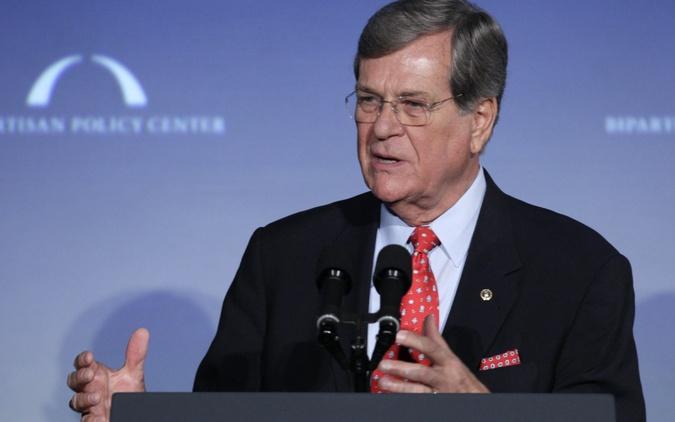Two Former Senators Are Helping a Russian Bank Fight U.S. Sanctions
By Arit John
The WIRE
When you’re a Russian company trying to manage U.S. sanctions it helps to have friends in the right places. That’s probably why Gazprombank, a Russian bank hit by sanctions earlier this year, named former U.S. senators Trent Lott and John Breaux as its lobbyists. The two were listed as the main lobbyists on the bank’s account with the firm Squire Patton Boggs, according to a Friday filing reported by the Center for Public Integrity.
The two will work on “banking laws and regulations including applicable sanctions.” In July, Gazprombank’s parent company was hit with sanctions by the U.S. Treasury Department.
The reaction has been predictably negative. Jonathan Chait at New York wrote that the actions of the “Washington sleazoids” were “yet another demonstration of the fact that a willingness to put pragmatism over ideology can be another way of saying you have no principles at all.”
But this isn’t the first time a Russian company has worked with American experts to improve its standing abroad. As The Washington Post explains, Gazprombank is owned by Gazprom, a Russian energy company that paid Ketchum, a U.S.-based PR firm, $3.7 million in fees in 2013. Ketchum has made tens of millions of dollars in Russia on various accounts since 2006, according to The New York Times, including work for the Russian government itself. At one point the company’s job was to improve the way national leaders saw Russia, but as Russia’s relations have soured with much of the West, so has Ketchum’s ability to do its job. A staff of three dozen employees once assigned to the account has been reduced to ten.
RELATED: How Eric Cantor Went Straight to the Top of His New Wall Street Firm
According to The Times, Ketchum worked with members of Vladimir Putin’s inner circle who “were initially convinced they could pay for better coverage, or intimidate journalists into it.” Ketchum was also a big reason Putin was named Time magazine’s “Person of the Year” in 2007. In 2008, when Russia and Georgia went to war, there was an effort within Ketchum to drop Russia as a client, but it fell through. As Lott and Breaux has since learned, there’s a lot of money to be made representing Russia.
